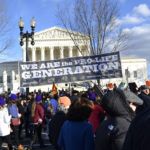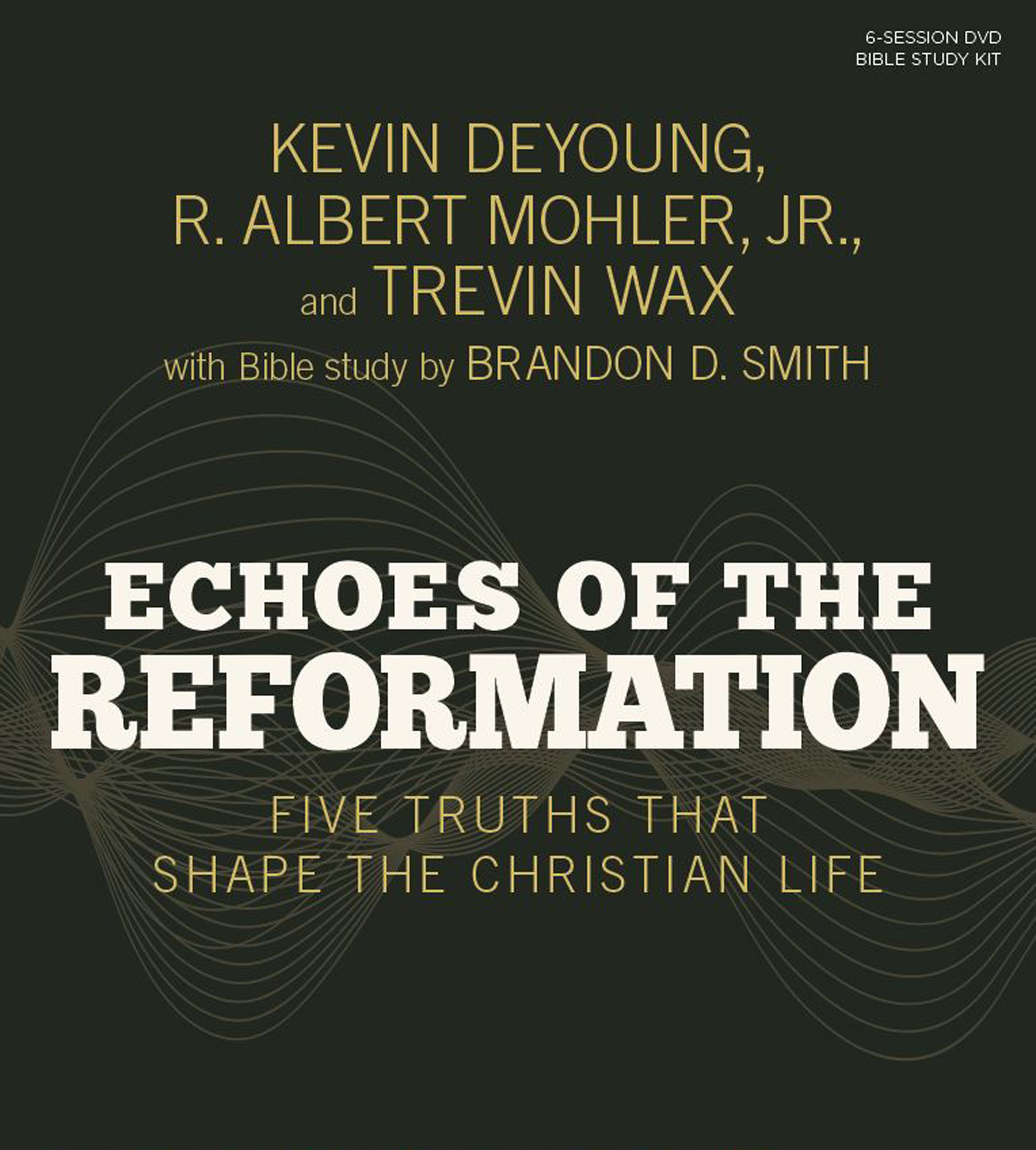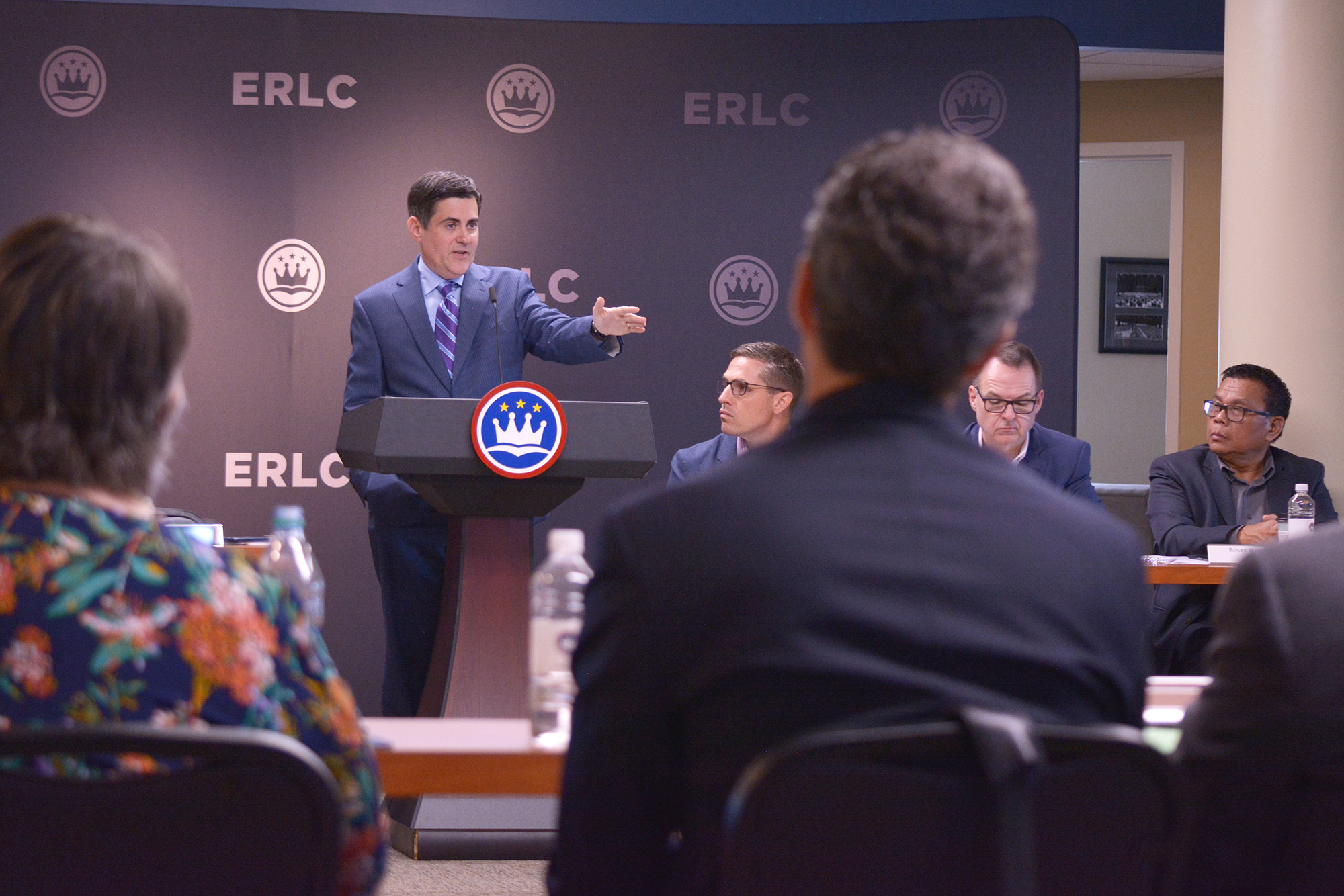
WASHINGTON (BP) – The Southern Baptist Ethics & Religious Liberty Commission has again called for Congress to provide a long-term solution for undocumented immigrants brought to the United States as children after another court ruling against a program that prevents their deportation.
The Fifth Circuit Court of Appeals in New Orleans upheld Wednesday (Oct. 5) a federal judge’s 2021 decision that the Deferred Action for Childhood Arrivals (DACA) program violates U.S. law by supplanting the authority of Congress regarding immigration. In its unanimous opinion, the three-judge panel also preserved the lower court’s decision to protect current DACA recipients from the effect of the order while prohibiting approval of additional requests to enter the program.
Established by a 2012 executive order from President Obama, DACA is designed to protect undocumented immigrants who arrived in this country before their 16th birthday. DACA provides a two-year window of protection from deportation and makes participants eligible for benefits that include permission to work.
A legislative answer for a problem that involves a category of immigrants commonly referred to as Dreamers – a label that stems from the name of a bill introduced to protect them – has never gained passage by both the Senate and House of Representatives in the same session since it was first introduced 21 years ago. The U.S. Citizenship and Immigration Services reported there were more than 594,000 active DACA recipients at the end of June.
“Dreamers are invaluable members of our churches and communities, and they will continue to live in uncertainty as long as Congress delays,” said Hannah Daniel, the ERLC’s policy manager, in a written statement for Baptist Press. “Eighty percent of evangelical Christians are supportive of immigration reforms that include a pathway to citizenship for Dreamers.
“Congress must act with urgency to pass a permanent, legislative solution that provides stability to these young people who have known no other home but ours.”
A Lifeway Research survey released Sept. 27 showed 80 percent of self-identified evangelicals would approve of bipartisan immigration reform that “strengthens border security, establishes a pathway to citizenship for Dreamers, and provides enough farmworkers.” The Evangelical Immigration Table (EIT) and World Relief sponsored the study.
EIT, which includes the ERLC among its organizational members, sent a letter signed by more than 1,000 evangelicals from all 50 states to members of Congress the day of the Fifth Circuit ruling to ask for prompt action for Dreamers.
DACA “was originally envisioned as a temporary measure, and ten years after it was announced, it’s clear that it is past time for a permanent solution for Dreamers – one that only Congress can provide,” said the EIT letter, which also had been sent in June before adding the names of evangelicals throughout the country.
“[Y]ou must not defer action further on this responsibility when you have the authority to resolve the issue this year.”
In addition to the ERLC, the EIT members endorsing the letter were the National Association of Evangelicals, World Relief, World Vision, National Latino Evangelical Coalition, Bethany Christian Services, Council for Christian Colleges and Universities, Faith and Community Empowerment and The Wesleyan Church.
Legislation to resolve the problem for Dreamers has been introduced in the Senate and House of Representatives in this session without gaining approval in both chambers. In 2021, the House passed by a 228-197 vote a bill to place Dreamers on a path to permanent resident status if they meet specific requirements, such as passing a background check and achieving a certain educational level or serving in the U.S. military.
The Trump administration rescinded DACA in 2017, but the U.S. Supreme Court overturned the action in 2020, ruling the action was “arbitrary and capricious” under the Administrative Procedure Act (APA), which governs the manner in which federal agencies establish and issue rules. The high court said the administration may revoke DACA but the manner in which it did so failed the procedural requirements of federal law.
In his opinion last year in favor of a challenge by Texas and eight other states, federal judge Andrew Hanen of Houston ruled the Department of Homeland Security (DHS) violated the APA in creating DACA.
Congress “has not given DHS the power to implement DACA,” Hanen wrote. Since DACA was implemented, Congress “has continued to consider and reject proposals to protect a DACA-like population,” he wrote. “The Executive Branch cannot just enact its own legislative policy when it disagrees with [Congress’] choice to reject proposed legislation.”
The Fifth Circuit panel agreed with Hanen, ruling DACA violated the APA’s procedural and substantive requirements. “The APA requires courts to ‘hold unlawful and set aside agency action’ that is ‘arbitrary, capricious, an abuse of discretion, or otherwise not in accordance with law,’ or ‘in excess of statutory jurisdiction, authority, or limitations, or short of statutory right,” Chief Judge Priscilla Richman wrote for the panel.
The appeals court panel returned the case to Hanen for his ruling on a final DACA rule issued in August by DHS.
The effort to provide a solution for Dreamers is one of many issues involved in reforming America’s immigration system. An estimated 11 million undocumented immigrants are in the United States, but congressional efforts to enact a comprehensive measure have failed.
In 2011 and 2018, messengers to the Southern Baptist Convention’s annual meeting adopted resolutions on immigration reform that called for securing the border and establishing “a just and compassionate path to legal status,” with restitutionary measures, for undocumented immigrants already in the United States.
When it was first proposed in 2001, a Senate bill to address undocumented immigrants brought to the country as children was introduced as the Development, Relief and Education for Alien Minors (DREAM) Act, which resulted in those covered by the measure being known as Dreamers.

























